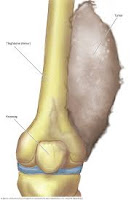 |
| http://cancers-list.blogspot.com/ |
 |
| http://cancers-list.blogspot.com/ |
 |
| http://cancers-list.blogspot.com/ |
Sadly, it knows no boundaries. Men, women and children are all at risk. According to the World Cancer Research Fund International, there were just about 12.7 million cancer cases seen in the world in 2008. This number was further divided and showed that about 6.6 million of them were male and 6.0 million female. These startling numbers are estimated to increase up to 21 million by the year 2030.
Breaking down those figures even further, these have been found to be the three most common forms of cancer in both sexes:
Lung - the most common type worldwide contributing nearly 13% of the total number of new cases diagnosed in 2008
Breast (women only) - the second most common type with nearly 1.4 million new cases in 2008
Colorectal - the third most common with over 1.2 million new cases in 2008
Gastrointestinal cancers
In fourth place is stomach cancer, along with others that affect the gastro intestine. It is a disease in which bad cells form in organs involved in digesting food or flushing out waste, counting the stomach, liver, pancreas, intestines, colon, and rectum and is classified according to the organ in which it forms as follows:
Stomach (also called gastric cancer) begins in the cells that line the inner layer of the stomach and then grow outward. It is often diagnosed at an highly developed stage, when it can be treated but not so often cured.
Risk factors for developing gastrointestinal cancer
Although not much is known about the causes of many types of gastrointestinal cancer, it is known that the risk factors vary among different types. These include:
Diet: Eating a high-fat diet is a risk factor for small intestine, pancreatic and colorectal cancer. A diet high in salty and smoked foods increases the risk to it as well as a diet high in red meat, processed meats and meats cooked at high temperatures increases risk of colorectal cancer. A diet that includes too few fruits and vegetables increases risk of both colorectal and stomach cancer.
Age: Many types of gastrointestinal cancers increase in frequency as people age.
Cigarettes: Smoking cigarettes increases risk of stomach and pancreatic cancer.
Excessive alcohol use: Excess alcohol increases the risk of liver and colorectal cancer.
Obesity: Being overweight is a risk factor for biliary cancer, colorectal cancer, liver cancer and pancreatic cancer.
Family history of gastrointestinal cancer: If your parent or sibling has been diagnosed with a gastrointestinal cancer.
Diabetes: Having diabetes increases your risk of pancreatic cancer and liver cancer.
Sedentary lifestyle: Exercising too little increases the risk of pancreatic cancer and colorectal cancer.
colon cancer, colon cancer, colon cancer, colon cancer, colon cancer, colon cancer, colon cancer, colon cancer, colon cancer, colon cancer, colon cancer, colon cancer, colon cancer, colon cancer, colon cancer, colon cancer, colon cancer, colon cancer, colon cancer, colon cancer, colon cancer, colon cancer, colon cancer, colon cancer, colon cancer, colon cancer, colon cancer, colon cancer, colon cancer, colon cancer, colon cancer, colon cancer, colon cancer, colon cancer, colon cancer, colon cancer, colon cancer, colon cancer, colon cancer, colon cancer, colon cancer, colon cancer, colon cancer, colon cancer, colon cancer, colon cancer, colon cancer, colon cancer, colon cancer, colon cancer, colon cancer, colon cancer, colon cancer, colon cancer, colon cancer, colon cancer, colon cancer, colon cancer, colon cancer, colon cancer, colon cancer, colon cancer, colon cancer, colon cancer, colon cancer, colon cancer, colon cancer, colon cancer, colon cancer, colon cancer, colon cancer, colon cancer, colon cancer, colon cancer, colon cancer, colon cancer, colon cancer, colon cancer, colon cancer, colon cancer, colon cancer, colon cancer, colon cancer, colon cancer, colon cancer, colon cancer, colon cancer, colon cancer, colon cancer, colon cancer, colon cancer, colon cancer, colon cancer, colon cancer, colon cancer, colon cancer, colon cancer, colon cancer, colon cancer, colon cancer, colon cancer, colon cancer, colon cancer, colon cancer, colon cancer, colon cancer, colon cancer, colon cancer, colon cancer, colon cancer, colon cancer, colon cancer, colon cancer, colon cancer, colon cancer, colon cancer, colon cancer, colon cancer, colon cancer, colon cancer, colon cancer, colon cancer, colon cancer, colon cancer, colon cancer, colon cancer, colon cancer, colon cancer, colon cancer, colon cancer, colon cancer, colon cancer, colon cancer, colon cancer, colon cancer, colon cancer, colon cancer, colon cancer, colon cancer, colon cancer, colon cancer, colon cancer, colon cancer, colon cancer, colon cancer, colon cancer, colon cancer, colon cancer, colon cancer, colon cancer, colon cancer, colon cancer, colon cancer, colon cancer, colon cancer, colon cancer, colon cancer, colon cancer, colon cancer, colon cancer, colon cancer, colon cancer, colon cancer, colon cancer, colon cancer, colon cancer, colon cancer, colon cancer, colon cancer, colon cancer, colon cancer, colon cancer, colon cancer, colon cancer, colon cancer, colon cancer, colon cancer, colon cancer, colon cancer, colon cancer, colon cancer, colon cancer, colon cancer, colon cancer, colon cancer, colon cancer, colon cancer, colon cancer, colon cancer, colon cancer, colon cancer, colon cancer, colon cancer, colon cancer, colon cancer, colon cancer, colon cancer, colon cancer, colon cancer, colon cancer, colon cancer, colon cancer, colon cancer, colon cancer, colon cancer, colon cancer, colon cancer, colon cancer, colon cancer, colon cancer, colon cancer, colon cancer, colon cancer, colon cancer, colon cancer, colon cancer, colon cancer, colon cancer, colon cancer, colon cancer, colon cancer, colon cancer, colon cancer, colon cancer, colon cancer,






